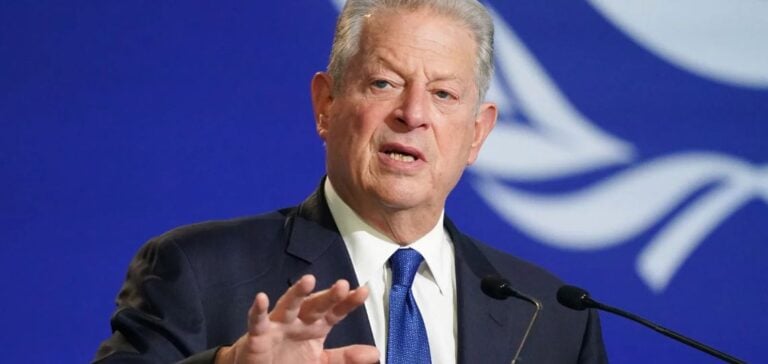COP29, held this year in Baku, Azerbaijan, has drawn strong criticism from former U.S. Vice President Al Gore. A leading figure in the fight against climate change and Nobel Peace Prize laureate, he described the selection of petro-states as hosts for global climate conferences as “completely absurd.” Azerbaijan, where oil revenues account for 90% of its balance of payments, represents an obvious conflict of interest, according to Gore.
He believes this choice reflects structural flaws in the selection process. Gore argued that the United Nations Secretary-General should play a greater role in choosing host countries, as the current method is influenced by complex political dynamics. He cited the example of Russia exercising its veto power, leaving Azerbaijan as the only viable option to host the event.
A necessary reform process
Beyond host selection, the extensive participation of fossil fuel stakeholders in COP events has also been criticized. Gore proposed introducing a “qualification test” for delegates to ensure their commitment to sustainable solutions. He suggested excluding fossil fuel companies unless they clearly demonstrate a commitment to transitioning away from carbon-based energy. He further accused certain oil sector actors of spreading misinformation about climate change, jeopardizing international negotiations.
“Why should the biggest polluters have more delegates than the most vulnerable countries to climate change?” asked Gore. This stark disparity in representation highlights the need for comprehensive reform.
The potential return of Donald Trump
With Donald Trump potentially returning to the U.S. presidency, Gore expressed confidence in the limited impact it would have on the global energy transition. During his first term, the U.S. withdrawal from the Paris Agreement did not slow the growth of renewable energy. Market forces, combined with the autonomy of U.S. states and local governments, sustained the progress of the green transition.
However, a second Trump presidency could have symbolic repercussions, further polarizing political attitudes toward climate issues.
Financing the transition in developing countries
Gore also addressed the issue of financing the climate transition in low-income countries. He emphasized that the majority of funding for the green transition comes from the private sector, but these financial flows are concentrated almost exclusively in developed nations. Developing countries, facing high-interest rates and limited access to private finance, are left behind.
To overcome these barriers, the former Vice President called for reforming multilateral institutions like the World Bank and the International Monetary Fund (IMF). According to Gore, these organizations must play a central role in ensuring equitable access to funding and enabling a fair distribution of resources needed to combat climate change.






















